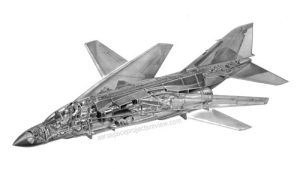ENGINEERING
B.E./B.Tech. Bachelor of Engineering – Bachelor of Technology
Bachelor of Engineering is an Undergraduate Academic Degree awarded for a course or program in the field of Engineering. The Bachelor of Engineering degree is one of the most pursued Degrees in the world. Bachelor of Engineering degree programs generally last 3 to 5 years depending upon the country. In India, the duration of Bachelor of Engineering Degree spans over a period of 4 years. The 4 year course consists of 8 semesters of instruction and a project in final year. A person seeking the Engineering Degree needs to study 5 subjects. There are various number of combinations of subjects, which one can opt for depending upon the availability of choices in various Institutes. It is popularly known as B.E. which is an abbreviated form of the Engineering Degree. Engineering Courses are offered by most Public and Private Universities in India. Engineering extends it’s branches catering to industries, technology and business.
Difference between B.E. and B.Tech.
To look for an answer to the question that is there any difference between Bachelors of Engineering and Bachelors of Technology is same as looking for a Black cat in a Black room when the cat is not there. Yet thinking that there can be no smoke without fire we are trying to clear the air by taking the talked about difference between these two engineering difference and their practical impact on future course of action.
| Bachelor of Engineering | Bachelor of Technology |
| Known as Plain engineering. | Known as Bachelor’s in engineering technology. |
| B.E. is knowledge oriented. | B. Tech. is skill oriented. |
| The plain engineering is more of theoretical based research | While engineering technology is more of application engineering. |
| B. E. emphasize on in depth concept clarification of facts. | Emphasize on Practical exposure of Conceptual Knowledge |
| In late 70s and early 80s institutes offering Engineering with other degrees, called their engineering degree B.E. | Institute offering only Engineering degrees called their degree – B.Tech. |
Answer to the question that which of the two are considered as greater degree greatly depends upon the mind set and work culture of the countries concerned rather than the Degree itself.
Hands-on-experience is preferable to knowledge in many countries (not in INDIA. In India, only knowledge is provided and experienced is gained on job itself).
In many countries, an Engineer without skill is not considered as an Engineer. To focus this point only, B. Tech. course was developed. Its one and the same basically, But IIT’s and foreign Countries call it B. Tech. instead of B.E.
Conclusion
As both B.E and B.Tech. has same general syllabus and both the degrees are treated same for jobs and higher studies and there is no difference in the duration of the course i.e both are four years degree course. Thus there is no applicable difference between these two degrees at all and the student need not to bother whether they are getting admission in B.E or B.Tech.
Eligibility
Only students from the science stream at +2 level (XI and XII) are eligible for the Bachelor of Engineering course. Age Limit is 17. Students are admitted on the basis of std XII marks or State-Commom Entrance Test (CET) or Deemed University entrance Exam or centralized All India Engineering Entrance Examination (AIEEE). Selection to BE is based on merit i.e the marks secured in the final exams of 10+2 and through entrance exams. Entrance to the IIT’s is through ‘JEE’ (Joint Entrance Exam) and for other institutions through their own separate entrance exams and other state level and national level exams. Most of the institutes conducting engineering courses in Aeronautics consider JEE score as the qualifying grade. Diploma holders in engineering are also eligible for entry into B.E. Diploma holders of engineering enter degree course, by lateral entry, which gives some concessions in study of subjects.
Subjects of Bachelor of Engineering vary from one’s preferred specialization.
Bachelor of Engineering or Bachelor of Technology Specializations
- Aeronautical Engineering.
- Agricultural Engineering.
- Architecture Engineering.
- Automobile Engineering.
- Biochemical Engineering.
- Bio-medical Engineering.
- Biotechnology
- Chemical Engineering.
- Ceramic Technology.
- Civil Engineering.
- Electrical Engineering.
- Electronics Engineering.
- Electronics and Communication Engineering.
- Energy Engineering.
- Genetic Engineering.
- Industrial Engineering.
- Instrumentation Engineering.
- Leather Technology.
- Manufacturing Engineering.
- Marine Engineering.
- Mechanical Engineering.
- Aerospace Engineering.
- Nano Technology Engineering.
- Petroleum Engineering.
- Petro-Chemical Engineering.
B.E. / B.TECH PROGRAMMES – Anna University Eligibility
| HSC (Academic & Vocational) Candidates: The minimum requirements for admission to B.E. / B.Tech. Programmes are : |
|
| Category | Average of fifth & sixth semesters |
| Open | 50 % |
| Backward | 45 % |
| Most Backward | 40 % |
| SC / ST | 40 % Just pass in the examination |
| Lateral Entry Candidates: Diploma Holders (various branches) are also eligible to II year of the four years B.E. / B.Tech Degree courses. |
|
| Category | Average of fifth & sixth semesters |
| Open | 50 % |
| Backward | 45 % |
| Most Backward | 40 % |
| SC / ST | 40 % Just pass in the examination |
Duration : 5 years
- Candidates seeking admission should have passed Higher Secondary Examination (10+2) with Mathematics as compulsory subject
or
- Two or Three Year Diploma (any stream) recognized by the Central or State Government with minimum of 50% of aggregate marks (45% aggregate for Reserved category) and minimum 40% marks in Aptitude Test (NATA).
Selection Basis
A merit list of qualified candidates will be drawn considering 50% marks from aggregate of HSC or equivalent examination and 50% marks of the Aptitude Test (NATA).
Aptitude test
Qualifying in the National Aptitude Test in Architecture (NATA) conducted by the Council of Architecture (COA) is compulsory to get the admission to B.Arch course. KARPAGAM / RVS college of Architecture is the Center for conducting NATA.
Fees: For Indian Students Fee at Rs. 1,00,000/-* Per Ann-um / NO DONATION / ONLY FEES
Duration: 4years
Eligibility: The minimum eligibility criterion for getting admission into this course is
10 +2 with 55% marks in Physics and Mathematics
Any Diploma with 50% marks
Any Graduate in Science with 50% marks
Medical Certificate for Physical Fitness & Non- Colour blindness
Tuition fees – Rs. 35,000/- per semester
Aeronautical Engineering is one of the most challenging fields of engineering with a wide scope for growth and it deals with the development of new technology in the field of aviation, space exploration and defense systems.
It specializes in design, construction, development and testing of both commercial and military aircraft, missiles, spacecraft’s and their components.
The scope for an aeronautical engineer in India lies with Air India, Indian Airlines, Helicopter Corporation of India, flying clubs, private airlines and government owned air service and aircraft manufacturers like the Aeronautics Ltd. (HAL) with its factories at Bangalore, Nashik, Koraput, Kanpur etc.
The aeronautical engineers are regularly recruited in the organizations such as Defense Research and Development Laboratories (DRDO), National Aeronautical Lab (NAL), Aeronautical Development Establishment (ADE), Civil Aviation Department etc.
The Defense services and Indian Space Research Organization (ISRO) also happen to be two major employers. Aeronautical engineers are also placed in various automobile industries, ground based gas turbine industries, BHEL, KIRLOSKAR, Windmill design and manufacturing industries etc.
Duration: 4 years
B.Tech. Agricultural Engineering or Bachelor of Technology in Agriculture Engineering is an undergraduate Agricultural Engineering course. Agricultural Engineering involves the study of agricultural engineering. It is the discipline that applies engineering science and technology to agricultural production and processing. The study of agricultural engineering combines the disciplines of animal biology, plant biology, and mechanical, civil, electrical and chemical engineering principles with knowledge of agricultural principles. The duration of Bachelor of Technology in Agricultural Engineering course is four years and comprises eight semesters. The course is also offered as B.E. Agricultural Engineering which is one and the same thing as B.Tech. Agricultural Engineering. The only difference lies in their terminologies. However, some institutes may offer it as B.Tech. or B.E.
Eligibility:
The basic eligibility criteria for a candidate aspiring to do a BE in Agricultural Engineering is 10+2, with Physics, Chemistry, Mathematics and preferably Biology.
Bachelor of Agriculture Jobs
The Green Revolution led to the development of government ministries and departments, research institutions, agricultural universities and various agricultural service organizations. These organization have expanded and as such these constantly requires new and advanced technology. This brighten the prospect of those studying Agriculture.
Employment Areas
Tea Gardens.
Coffee and Rubber Pl plantations
Fruit Orchards.
Research Organizations.
Educational Institutes.
Research and Development.
Agricultural Production Centers
National Seed Companies.
Cotton/ Jute/ Tobacco Companies.
Agricultural and Food Products Related Companies.
Pesticide Control.
Fertilizer Companies.
National Bank For Agriculture And Rural Development.
Job Types
Agriculture Technician.
Senior Agriculture Specialist.
Deputy General Manager (Production).
Seed Technologist.
Senior Associate – Research.
Business Development Executive.
Agriculturists.
Agriculture Scientist
Data Curator.
Rice Breeder.
Marketing Executive.
Admission Started For ( Architecture, Agricultural, Aeronautical & Aerospace )
For Booking Call : +91- 98945 02366



